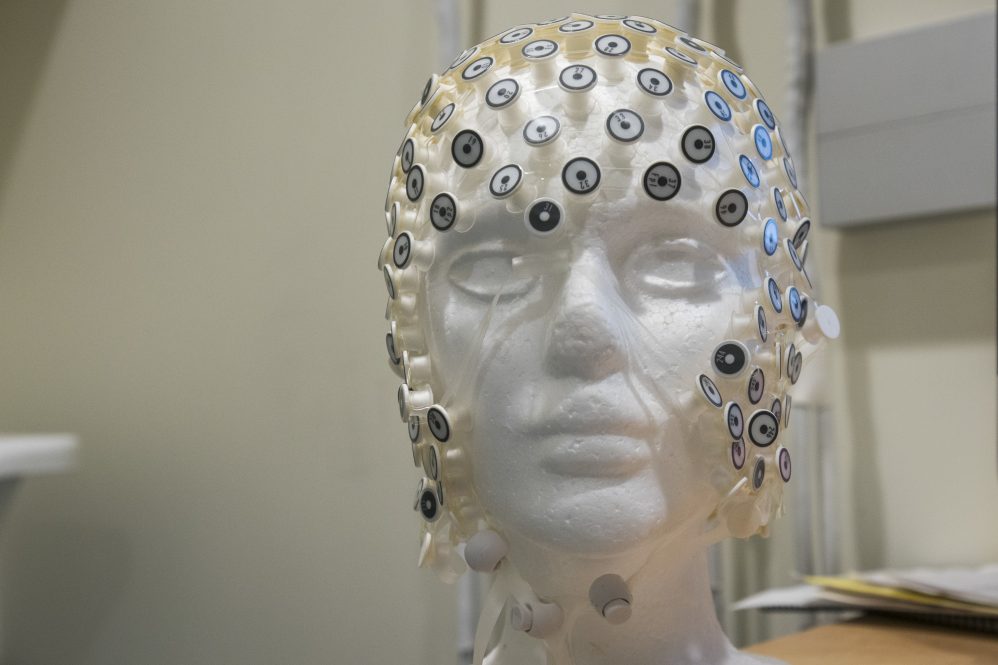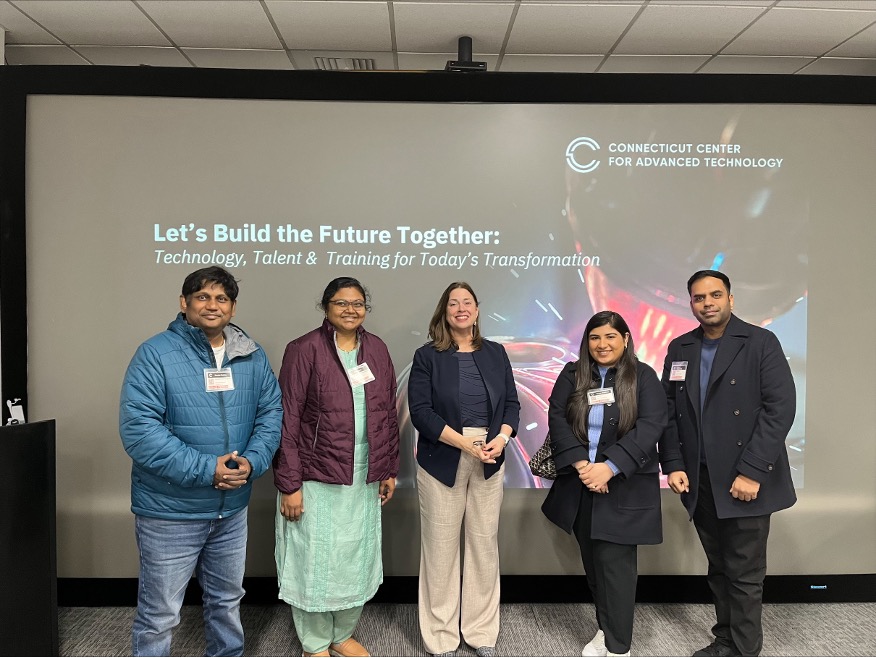The Ph.D. program in Language & Cognition in the UConn Department of Psychological Science has received funding for five three-year fellowships through the Graduate Assistance in Areas of National Need (GAANN) program of the U.S. Department of Education. These fellows will be doctoral students in the Language & Cognition Ph.D. program.
The GAANN program provides fellowships to assist qualified graduate students with demonstrated financial need who plan to pursue the highest degree available in a field designated as an area of national need. The category of cognitive psychology and psycholinguistics was identified as an area of national need in the latest GAANN competition, which is the focus of the Language & Cognition Ph.D. program. The Language & Cognition selection committee will also prioritize ensuring the cohort includes individuals from historically underrepresented groups.
Professor of Psychological Sciences Jim Magnuson is the PI on this grant. The faculty on this grant includes Gerry Altmann, Christian Brodbeck, Roeland Hancock, Fumiko Hoeft, Emily Myers, Ken Pugh, Jay Rueckl, Whit Tabor, Rachel Theodore, and Eiling Yee.
The Language & Cognition program trains students in high-need areas such as psycholinguistics, cognitive neuroscience, and computational approaches. UConn is home to one of the largest concentrations of language scientists in the world thanks to its unique offerings in cognitive psychology, psycholinguistics, and related fields in multiple departments.
The program trains students to become successful researchers and educators. The GAANN funding will allow the Department to take on additional Ph.D. students to create a larger-than-average cohort for Fall 2022.
This research can help address critical questions for public health by uncovering the neural bases for both typical and atypical language. Graduates from UConn’s program will also be well qualified to work on federal efforts such as the BRAIN initiative which is focused on the development and application of technologies that can help us understand brain function and the National Academy of Engineering’s challenges to reverse engineer the brain and advance personalized learning.
The program will provide trainees with foundational knowledge in theories of cognitive psychology and psycholinguistics and training in experimental design, data science, computational modeling, using tools like functional magnetic resonance imaging (fMRI) and electroencephalography (EEG), and how to disseminate information to scientific and lay audiences. This training will allow trainees to conduct cutting-edge psycholinguistic research. Fellows will also receive mentoring and teaching experience.



